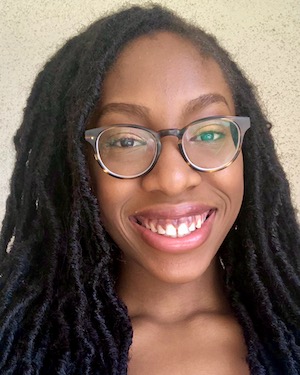Let’s Talk About Mental Health!

July 16, 2020
by Nmachi
As you may or may not know, July is BIPOC Mental Health Month! This month is dedicated to recognizing the specific struggles that Black, Indigenous, and People of Color face regarding mental health.
Personally, BIPOC mental health means taking the time to recognize that prioritizing my mental health is just as (or even more so) important as all the other goals in my life. Growing up in an immigrant household, I was told from a young age that I was to do my best in school and be the best person I could be so that I could make my family proud. Even though this notion is very much still important to me, I had to learn on my own that mental health is just as important as physical health and should be placed at a higher value in my life. Throughout my middle school and high school years, I was faced with the dilemma of consistently getting straight A’s in my classes or putting my mental health first. I know that a lot of people in my community, especially those from immigrant households, are faced with this issue constantly. The biggest thing I’ve learned overtime is that in order to succeed in all areas of my life, it is crucial that I spend time with myself and learn about things I need to do daily to relieve unnecessary stress and anxiety.
Another key reason why July is recognized as BIPOC Mental Health Month is because of the unique type of trauma that the people of this community may face: racial trauma. Racial trauma, or race-based traumatic stress, refers to how racial biases and discrimination can affect mental health. I would highly suggest reading more about this here.
With all of this being said, there are many things that I do to cope with feelings of self-doubt and unhealthy perfectionism. Here are a few occupations that help me alleviate stressors in my daily life:
Consuming music regularly
Music is a form of therapy in my life. Whenever I feel overwhelmed for whatever reason (academic/personal stress) I continue to turn toward all forms of enjoying the beauty of music. Playing acoustic guitar, singing, and dancing to music are ways that I deal with my positive and negative emotions that naturally come and go.
Speaking with people I trust about my struggles
I find that expressing what I’m feeling and discovering the reasons why I am feeling that way is crucial when attempting to resolve inner conflicts. Thankfully, I was able to find those people who I can confide in and who will keep me accountable at USC. Having a strong support system outside of my family was very important to me. I am forever grateful to those friends, who I now call family, that continue to be there for me and understand my unique struggles as a young Black woman.
Daily affirmations
I started to incorporate affirmations into my daily routine fairly recently. As I began to make reading affirmations a habit, I noticed a difference in the way I view myself as an individual. When I would consistently tell myself that I am worthy of love and happiness, it allowed me to not let the negative thoughts and comments of others truly affect me. Don’t get me wrong, not giving in to others’ predisposed thoughts about me as a Black woman is a daily battle. It is very difficult to maintain confidence in who you are as a person when society and peers overlook you and your community all the time! Despite this, I know now that I don’t need to feel like I have to prove myself to everyone. I don’t need to be perfect. I am perfectly fine right now, just as I am.
⋯
Next by tag Diversity ⟩ Life Hacks ⟩
⋯





